Turn any article into a podcast. Upgrade now to start listening.
Premium Members can share articles with friends & family to bypass the paywall.
Happy Tuesday! Good news: Costco’s four-pound Kirkland Signature Pumpkin Pie has returned to shelves, and somehow still costs just $5.99. Nothing says “I’m handling the news cycle well” like eating a dessert that weighs as much as a brick.
Quick Hits: Today’s Top Stories
- Multiple news outlets reported that the Israel Defense Forces launched its major ground offensive to occupy Gaza City overnight, starting with air strikes on the city before tanks entered. According to two Israeli officials who spoke with Axios, Secretary of State Marco Rubio told Israeli Prime Minister Benjamin Netanyahu that the White House backs the operation, so long as it’s completed quickly. The IDF has increased its activity in Gaza City over the past week, issuing an evacuation order for the city’s residents a week ago, and the IDF estimates that 300,000 Palestinians have evacuated so far.
- President Donald Trump announced in a social media post Monday that the U.S. military had struck a boat containing suspected drug traffickers somewhere in the zone covered by the U.S. Southern Command, which covers Central and South America and the Caribbean. It was the second such attack this month, following a strike that killed 11 people off the coast of Venezuela. “The Strike resulted in 3 male terrorists killed in action,” stated Trump, who also attached a video of the alleged drug-carrying boat being struck by a missile. Venezuelan President Nicolás Maduro has characterized the U.S. deployment to waters near his country as military aggression.
- Axios reported Monday that Netanyahu informed Trump of impending air strikes on Qatar roughly an hour before Israel attacked Hamas leadership in Doha last week. Previously, the White House had claimed that it was notified of the strike only after missiles had been launched and that it was never in a position to prevent Israel from carrying out the attack on the terror group’s leaders. Last week, Trump told reporters that he was “very unhappy” about the Israeli strike and claimed that he sent White House special envoy Steve Witkoff to warn Qatar about the strike as soon as he was informed of it.
- Treasury Secretary Scott Bessent said Monday that the U.S. and China had reached a framework deal concerning ownership of the social media platform TikTok, following trade negotiations in Madrid over the weekend. While he declined to comment on the details of a deal “between two private parties,” Bessent said that “commercial terms have been agreed upon” and that the deal’s objective is for TikTok to switch to U.S. ownership. In 2024, Congress passed a law to ban TikTok on national security grounds unless its Chinese owner divested the platform, but Trump has declined to enforce it, instead issuing extensions while his administration tries to arrange a sale. The latest extension is set to expire Wednesday. Bessent said that Trump and Chinese President Xi Jinping would speak on Friday to finalize the deal.
- Chinese regulators said Monday that artificial intelligence chip manufacturer Nvidia violated anti-monopoly laws, announcing the results of a preliminary antitrust investigation. The announcement came after the U.S. on Friday barred two Chinese chip manufacturers, GMC Semiconductor Technology Co. and Jicun Semiconductor Technology, from buying American semiconductors. China did not say what penalties Nvidia may face, but the move complicates ongoing trade negotiations between the U.S. and China. China generated $17 billion in revenue for Nvidia in its fiscal year ending January 2025, representing 13 percent of the company's total sales. In August, Nvidia agreed to pay the U.S. government 15 percent of revenue from high-end AI-specialized chips sold to China—chips that had previously been blocked from sale.
- The armed forces of the U.S., South Korea, and Japan began a trilateral defense exercise Monday off the coast of Korea’s Jeju Island. The exercise, set to run until Friday, is called Freedom Edge 25 and meant to improve cooperation between the three countries in air, naval, and cyber capabilities in order to counter North Korea. “Freedom Edge 25 will stand as the most advanced demonstration of trilateral defense cooperation to date,” said a statement from the U.S. Indo-Pacific Command.
- New York Gov. Kathy Hochul, a Democrat, on Monday announced that she would endorse state Assemblyman Zohran Mamdani, the winner of the New York City Democratic primary, for mayor in November’s election. “We’ve had our disagreement,” wrote Hochul in the New York Times. “But in our conversations, I heard a leader who shares my commitment to a New York where children can grow up safe in their neighborhoods and where opportunity is within reach for every family.” Trump criticized the decision on social media and appeared to threaten to withhold federal funds from New York City if Mamdani won, saying, “No reason to be sending good money after bad!”
- A federal appeals court on Monday rejected Trump's attempt to fire Federal Reserve Governor Lisa Cook, hours before the central bank's critical two-day interest rate meeting. Trump sought to fire Cook, the first black woman to serve as a Fed governor, on the basis of mortgage fraud allegations, saying she had claimed two homes as primary residences on home loan applications. She has not been charged related to the allegations, has denied wrongdoing, and sued to block her removal from the Fed board. Reuters reported on Saturday that Cook had listed one of her properties in Atlanta as a “vacation home” rather than a primary residence.
- The Senate Monday night confirmed Stephen Miran to the Federal Reserve Board of Governors in a 48-47 vote, with Sen. Lisa Murkowski of Alaska the only Republican to vote no. Miran, who chairs the White House Council of Economic Advisers, becomes the first White House official to simultaneously serve on the Fed board in 90 years after Trump nominated him to fill the remaining term of Governor Adriana Kugler, who resigned in August. Miran said he would take unpaid leave rather than resign from his administration role as he serves until January 2026.
- Maurene Comey, a former federal prosecutor and the daughter of former FBI Director James Comey, sued the Trump administration on Monday for unlawful termination. In the suit, she alleged that her firing in July was “without cause, without advance notice, and without an opportunity to contest.” The suit also referenced Trump’s harsh criticism of her father and social media posts from pro-Trump influencer Laura Loomer urging that Comey be fired.
Kathmandu Burns

When travel vlogger Harry Jackson arrived in Nepal’s capital city, Kathmandu, as part of a motorbike trek from Thailand to the U.K., he couldn’t have known that he’d land in the middle of a revolution. “I cannot believe my eyes right now,” he says in a now-viral video posted September 9. “The whole of Parliament is on fire. People are dancing.”
Days of deadly protests began September 4 when Nepal’s government effectively banned its population from accessing numerous popular social media platforms, including Facebook, Instagram, WhatsApp, X, YouTube, and even LinkedIn. Young protesters took to the capital’s streets, and on September 8, as more gathered and the protests turned rowdier, law enforcement met the crowds. The country’s minister for communication, Prithvi Subba Gurung, said authorities used water cannons, batons, and rubber-bullet guns to disperse protesters. However, numerous sources told the nonprofit watchdog Human Rights Watch that police fired live ammunition into the crowds, and the Kathmandu Post reported that protesters had arrived in the city’s National Trauma Center with bullet wounds. Dr. Badri Rijal, the facility’s medical superintendent, told the publication that “protesters were shot in their head, chest and abdomen.”
Per Nepali authorities, at least 72 people were killed in the protests, and more than 1,300 have been injured. The government also instituted a curfew, widely ignored, that allowed residents to leave their homes for a few hours a day to buy food and supplies.
On September 9, the crowd pushed past law enforcement to storm the city’s International Convention Center, the home of Nepal’s legislature. “What happened in there? Explosions?” Jackson asked one local.
“Burning,” he answered. He gestured to the surrounding crowd: “Parliament burning, from we.”
Along with the parliament building, mobs inflicted damage on the Supreme Court, local police stations, elected leaders’ homes—including those of several former prime ministers—and private businesses. The country’s largest media company, Kantipur Media Group, paused two of its digital publications after fires, set by protesters, destroyed their servers and damaged their offices.
Later on September 9, Nepalese Prime Minister K.P. Sharma Oli resigned from his post, and the government repealed the social media law. By Friday, Sushila Karki—a 73-year-old former chief justice on the Supreme Court—was sworn in as interim prime minister.
She was nominated after winning several polls, organized by protest leaders, held on the online group-messaging platform, Discord, and is the Hindu nation’s first female leader. Karki said she plans to hold the position for six months and aims to hold elections for new leaders on March 5. “I did not wish for this job,” she said. “It was after voices from the streets that I was compelled to accept.”
The struggles of political upheaval are not new to the small Himalayan nation, which has always held onto its sovereignty despite invasions from Indian, Chinese, and British forces over the centuries. Nepal “has faced political instability for 17 years,” Aparna Pande, a Hudson Institute research fellow, told TMD. “And before that, it had two decades of a civil war.”
Most of Nepal’s younger citizens are old enough to remember the 10-year civil war that unfolded between the Nepali monarchy and Maoist rebel fighters, starting in 1996. Nepal’s King Gyanendra Shah was removed from power following a peace deal, and an interim legislature voted to abolish the monarchy in 2008—but roughly 17,000 people died in the conflict, according to a 2012 report from the U.N. High Commissioner for Human Rights.
Even with the passage of a new constitution in 2015, Nepal’s political state has been anything but stable. Not a single prime minister or parliamentary majority has held power for a full five-year term, and Oli and his predecessor and political rival, Pushpa Kamal Dahal, have both served several nonconsecutive terms as prime minister since 2008. Many in Nepal view elected leaders as engaged in a game of musical chairs rather than partisan politics.
“It was a monarchy until 2008, and, [in] the last 17 years, there have been 14 governments,” Pande said. “So, almost no government has lasted.”
Most importantly, the political system is viewed as corrupt. As Pande explained, “You don't get admission to school, you don't get admission to a college of your choice, you don't get a job, unless your parents are able to pay that massive, corrupt amount of bribe to that local official, the school official, or that university.”
Such a system became untenable as Nepal’s unemployment rate climbed higher than any annual mark between 1991 and 2019, clocking in at 10.7 percent in 2024, according to data from the World Bank. For those aged 15 to 24 in the labor force, unemployment was at 20.8 percent in 2024. Making matters worse, a labor force survey conducted by the Nepali government’s Central Bureau of Statistics in fiscal year 2017-18 found that 84.6 percent of jobs are in “informal employment,” which, as Pande explained, “means working from home, sort of doing something temporarily.”
According to a 2025 World Bank report, despite notably reducing poverty over the past 30 years, the country’s economic growth has been stunted by multiple factors: namely, persistent political instability, the country’s landlocked, mountainous terrain—which inherently raises trading and transport costs—and by widespread emigration of young men seeking work abroad. As the report notes, “By 2023, remittances accounted for around a quarter of Nepal’s GDP”—and though that helps struggling relatives, it doesn’t create jobs.
But Pande said that many protesters “believe that the reason they are not getting jobs is because the children of the elite get the jobs,” and most or all financial opportunities are awarded to a “small number of families and only their friends.”
Earlier this year, social media users began taking clips from wealthy Nepalis’ social media posts to form into video edits, which they then uploaded to the platforms, often accompanied with the hashtag, #nepokids, a reference to nepotism, and the trend quickly went viral. As David Gellner, professor emeritus at the University of Oxford and former head of its School of Anthropology and Museum Ethnography, told TMD, “Obviously, Facebook and Instagram and so on are designed partly for that: A lot of people kind of demonstrating their middle-class lifestyles and showing off their new house, or their new car, or their holiday in Thailand, or whatever it is.” That might read as anodyne to those in comfortable economies, but it’s maddening to many struggling in Nepal’s current economy.
Nepal’s lawmakers had for years identified social media as a potential risk to the country’s social fabric, leading to a wide-scale, anti-government backlash. This contributed to their decision to pass a law banning social media access to platforms over which the government had little to no control. The law didn’t prohibit these social media platforms from operating in the country outright, but required them to register with the government so that, as Gellner explained, the government would “have some kind of control or limits on what people can use the platforms for.”
The government pitched the law to the public as a safeguard against cybercrime, explaining that such restrictions would help prevent not only online criminal fraud but also hate speech and misinformation. However, the public largely didn’t buy it. Government leaders “were trying to ensure that nothing happens with challenges [against] their hold on power,” said Pande. Hence, the solution was to have “access to who's going online.”
“In their attempt to prevent what they thought may happen, they actually instigated what happened,” she said.
The backlash should not have been surprising. By taking away the public’s access to the most popular social media platforms, the government removed one of the few “things they have,” Pande said. “They may not have a television, they don't have a landline, they have a smartphone. Their smartphone is their access to news, contacting people, everything, and so Facebook, Meta, WhatsApp, [and] YouTube are very important for young people.” It’s not just socially vital, but as Gellner said “for many of them, it's absolutely central to their livelihood, because they conduct business over these platforms.”
As Pande explained, “They saw it simply as the iron fist of the state coming down to impose restrictions on them without giving a justification which they would be willing to accept.” And so, within five days, the public had taken to the streets, burned down the parliament building, and nominated a new leader.
Thousands joined funeral processions in Kathmandu this morning, honoring the young protesters who died last week. The new government officially declared them “martyrs,” according to the Kathmandu Post, and will pay their families a million rupees each (roughly $7,095 USD at current exchange rates), plus an additional 500,000 rupees to cover other expenses.
But with a caretaker government and a lagging economy, the situation is far from settled. “If the young people do not have jobs, they are unable to get jobs domestically or internationally,” Pande said, “in a few years, we'll be back to where we are, maybe [with] a bigger protest.”
Today’s Must-Read
Dynamic pricing is coming to the 2026 World Cup—and fans are already crying foul. No sooner was the announcement made by FIFA, the international governing body of soccer, than Zohran Mamdani, the leading candidate for mayor of New York City and a democratic socialist, said he had started a petition to press FIFA to drop the pricing plan and “put game over greed.” By using dynamic pricing—where prices can change based on demand, as with Uber’s surge pricing—FIFA can now “figure out in real time how much they can get away with for charging a ticket,” claimed Mamdani. … But is FIFA—and every other practitioner of dynamic pricing from Uber and Amazon to Marriott, Delta, and Target—really playing dirty? Are they price-gouging their customers, as populists like Mamdani insist, or are they improving their bottom line while offering a better overall deal to consumers?
Toeing the Company Line
Deep Freeze
Cancel culture under a postliberal regime.
Chinese Exceptionalism
Beijing has a different view of diplomacy.
Bored Equal: A Tired History of the Constitution
A ‘grand narrative’ is actually quite garden variety.
A Brief History of Trump’s Empty Threats Against Russia
Since his first term, the president has repeatedly pledged to sanction Russia while rarely following through.
No Evidence White House Video on Charlie Kirk’s Assassination Is AI
The claim went viral based on questions about the president’s hand movement.
Superhighways of Foreign Influence
Divided nations and ‘violent’ speech.
Worth Your Time
Ever since Charlie Kirk’s murder on Wednesday, partisans have been working overtime looking for a “they” to blame. The Trump administration has pinned it on the left; others like writer Heather Cox Richardson blame the right; and many on both sides blame Jews. (Will Sommer has a good round-up of MAGA conspiracies in The Bulwark). Freddie DeBoer, in his Substack piece titled “Constituent Parts of a Theory of Spectacular Acts of Public Violence,” tries to provide a deeper explanation for this particular moment of public violence: “The 21st century school shooter (for example) does not murder children in an effort to pursue some teleological purpose; the 21st century school shooter exists in a state of deep purposelessness and, at some level and to some degree, seeks to will meaning into being through their actions. This is part of why so many of them engage in acts of abstruse symbolism and wrap their politically-incoherent violence in layers of iconography; they are engaged in cargo cult meaning-making, the pursuit of a pseudo-religion. The tail wags the dog; acts we have grown to see as expressions of meaning are in fact childish attempts to will meaning into being through violence. Conservatives will of course go on saying that Tyler Robinson was an antifa soldier trained in a George Soros-funded BLM terrorist cell. … Clearly he had some sort of ideological urge, some sense that his violence should contain meaning, but his impulses and influences are incoherent; indeed, that urge has been inculcated in online communities that are defined by nothing so much as, well, nothing …” He continues, “The Kirk murder, in this context, is not an act of political terrorism; it is a desperate, violent assertion of personal meaning by a pathetic, immoral agent operating in a system experiencing a collapse of meaning. The assassin is the ultimate product of a society that has become a cacophony of contradictory signals. Unable to process a single, clear purpose, the individual becomes a tragic automaton, compelled by a violent impulse and forced to invent a narrative that can, however briefly, make sense of the carnage. The ideology is not the map to the violence; it is the bewildered commentary on a journey that has already begun.”
Presented Without Comment
Associated Press: Fox News’ Brian Kilmeade Apologizes for Saying Mentally Ill Homeless People Should Be Executed
Also Presented Without Comment
New York Times: Elon Musk Buys $1 Billion in Tesla Stock as Board Defends His Pay
Elon Musk has bought around $1 billion worth of Tesla stock, his first such purchase in more than five years, as the company’s board promoted a new compensation plan that could grant him nearly $1 trillion if he meets certain performance targets …
The purchase appeared to please investors. Tesla’s stock rose more than 6 percent, to around $422, on Monday morning. Mr. Musk said on X Monday morning that the increase in Tesla’s stock over the last several years was "foretold in the prophecy.”
Also Also Presented Without Comment
WSB-TV: Scuba Man Robs Disney Springs Restaurant, Swims Away
LAKE BUENA VISTA, Fla. — Deputies are hunting for a man who robbed the Paddlefish restaurant at Disney Springs by swimming up in scuba gear and making off with thousands of dollars.
Let Us Know
Have any thoughts or questions about today’s newsletter? Drop us a note in the comments!


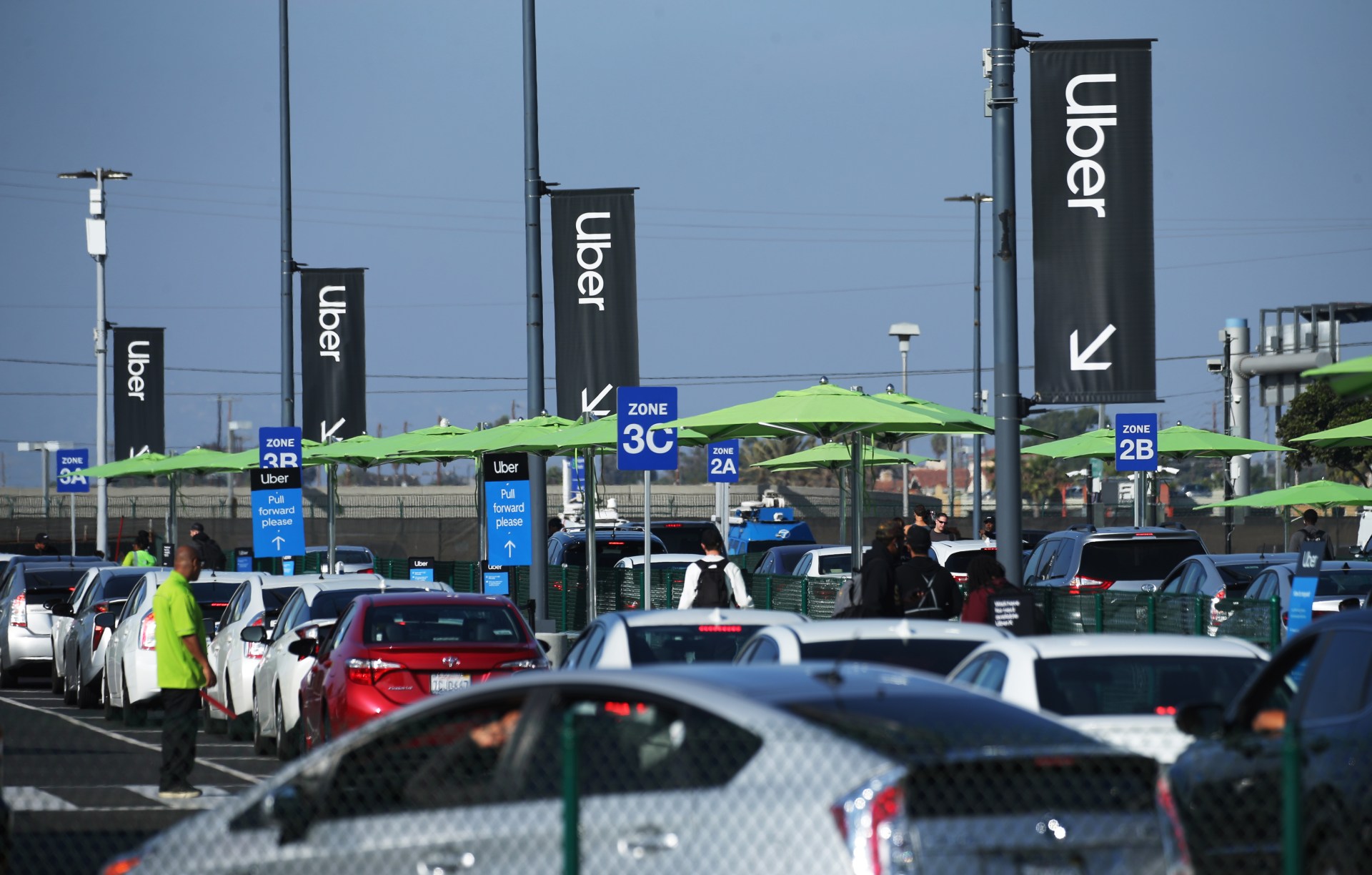

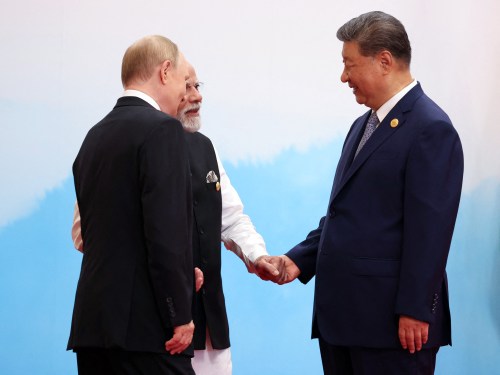


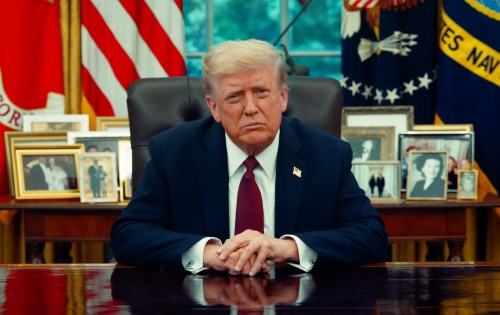
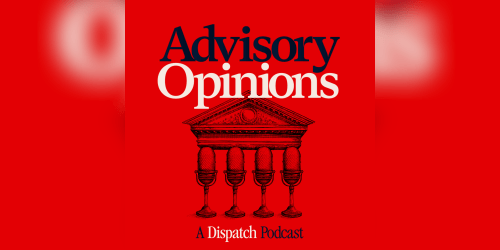




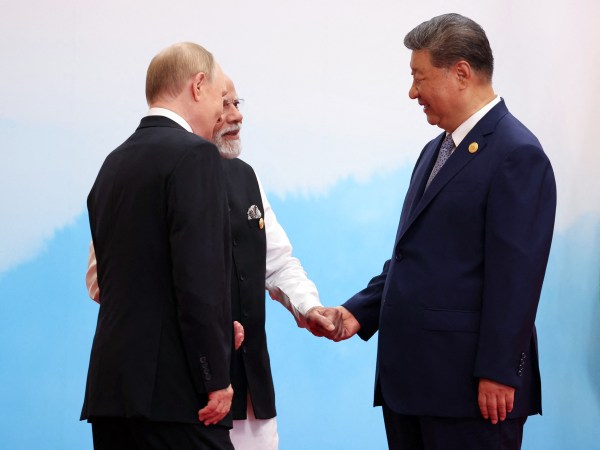



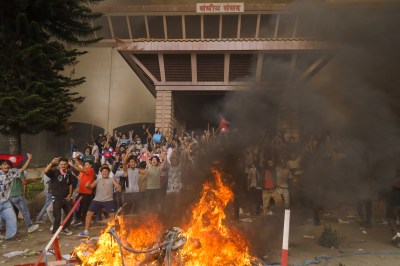
Please note that we at The Dispatch hold ourselves, our work, and our commenters to a higher standard than other places on the internet. We welcome comments that foster genuine debate or discussion—including comments critical of us or our work—but responses that include ad hominem attacks on fellow Dispatch members or are intended to stoke fear and anger may be moderated.
With your membership, you only have the ability to comment on The Morning Dispatch articles. Consider upgrading to join the conversation everywhere.